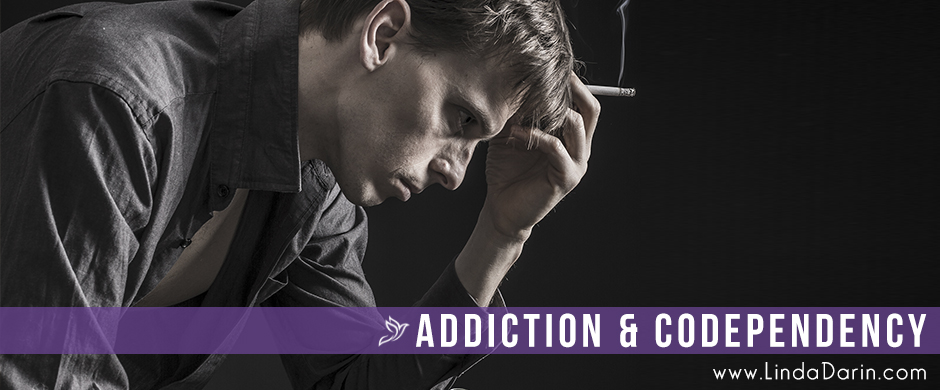Addiction and Powerlessness
Becky is a forty-year old pharmacist, married to an entrepreneur. The terror in her voice was clear when she called holistichealingny.com to request an immediate appointment. She arrived in my office exhausted, nervous and crying. She explained that after eight years of marriage, her husband had found out that she was having an affair. She did not want the marriage to end, but David had insisted he could no longer live with her; in fact, he had asked her to move out.
Their marriage had been troubled for some time. They worked long hours and seldom enjoyed each other’s company. Two years previously they had visited a couple’s therapist, but could not resolve some of their issues. The marital stress only increased when in the last year Becky became pregnant. The baby was born full-term, but he died two days later due to respiratory problems. I felt great concern that Becky spoke about this trauma with no emotion as she showed me the baby’s picture on her phone.
When I asked her if she had met with a grief counselor, she seemed to think there had been no need for help. Rather, she had sought chemical help. Becky admitted to smoking marijuana and drinking on a daily basis. Her history revealed that she began taking various drugs at age sixteen. Her first blackout was at twenty two. Her drug habit had stopped only during her pregnancy, but she resumed after the baby was born. She was familiar with the language of AA and had attended several meetings, but while she knew she was powerless over her addiction, she could never commit herself to working the steps. She had never been to a rehabilitation center.
Clearly, Becky was in crisis. I suggested that she needed a thirty to ninety day rehabilitation center, and that the need was immediate. She began to sob. As she calmed down, she asked me to help her take that step. I called her husband without delay before she left the first appointment. He was shocked at the news, as he had been asking her to go to rehab for years. I asked him to gather the family together for an emergency meeting that night at my office. He agreed.
Several hours later, Becky, her husband David, her mother, and her sister and brother arrived at my office. Becky initiated the meeting. She told her loved ones of her intention to go into rehab, admitting that her addiction was controlling her life and that her marriage was in trouble. Each family member spoke in turn about how her addiction affected their lives.
Her mother, Molly, had suffered from Becky’s lies and rage. Molly felt helpless as her daughter aged before her eyes. Weeping, Molly explained that her own mother had been an alcoholic, and that her experience with Becky was touching old wounds. With joy and fear, she offered to help pay for Becky’s stay at the rehabilitation center.
Becky’s sister, Linda, explained that she could not allow her children near Becky. She spoke of her shame at Becky’s behavior.
Her brother spoke about the past, asking Becky to let go of hurts that she had endured because of their father. “You are such a loving person,” he said, “and have helped so many people. Please help yourself.”
Becky’s husband refused to go into detail regarding the pain that he had endured for eight years. He did not want to humiliate or shame her any more than needed, but he made it clear that he could no longer go on as before. Becky could not return home unless she significantly changed.
Despite their pain and hurt, each family member showed support by offering to help pay for Becky’s stay in rehab.
From there, things moved quickly. I suggested that Becky call a few addiction centers while we were gathered. After calling three, she decided on Hazelden Addiction Treatment Center in Minnesota, and she decided to go for ninety days. The facility offered specific treatment for caregivers like pharmacists. She spent an hour on the phone answering many questions in the application process. It was also a collaborative process; we all supported her as she made her decisions. Since her insurance company would not cover the program, her family made good on their offers to help out financially.
In the end, her plane ticket was booked and she was set to leave the next day. Becky expressed her appreciation with tears, and her family shared great relief that she was finally going to take responsibility for her disease. They all thanked me with genuine appreciation and love.
David, her husband, booked an appointment with me before he left.
When David arrived at my office two days later, he admitted that he, too, needed help. He wanted to explore his own codependency. He decided to visit me weekly for the ninety days that Becky remained in treatment. Using the Darin Method®, he and I are now exploring intuitive counseling, energy healing, chakra healing, and color, light, and sound healing. In reading books on codependency, David realized he was programed as a child to fix, save, and rescue different family members. He shows a commitment to change this pattern and belief system. He is also working through his own fears and shame concerning intimacy.
Becky is not home yet, but David is working very diligently in his own treatment. He desires to resume the marriage in a new way. He now realizes that the patterns, belief system and inner turmoil that both he and Becky brought to the marriage needs to be resolved. David is grateful for his own recovery and feels an overwhelming sense of new life ahead.

